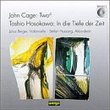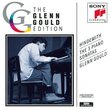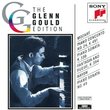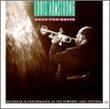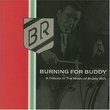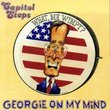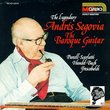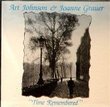| All Artists: Arnold Schoenberg, Robert Craft, Glenn Gould, Chamber Ensemble, Juilliard String Quartet, CBC Symphony Orchestra Title: Schoenberg: Piano Works Members Wishing: 0 Total Copies: 0 Label: Sony Release Date: 2/7/1995 Genres: Special Interest, Pop, Classical Styles: Vocal Pop, Opera & Classical Vocal, Chamber Music, Forms & Genres, Concertos, Suites, Historical Periods, Modern, 20th, & 21st Century, Instruments, Keyboard, Strings Number of Discs: 2 SwapaCD Credits: 2 UPC: 074645266428 |
Search - Arnold Schoenberg, Robert Craft, Glenn Gould :: Schoenberg: Piano Works
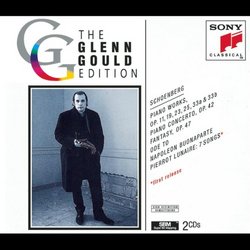 | Arnold Schoenberg, Robert Craft, Glenn Gould Schoenberg: Piano Works Genres: Special Interest, Pop, Classical
|
Larger Image |
CD DetailsSimilar CDs
Similarly Requested CDs
|
CD ReviewsThe "least dry" Schoenberg ever 11/09/1999 (4 out of 5 stars) "I believe wholeheartedly that, for the uninitiated, this disc is difficult to truly appreciate without having heard other pianists attempt these pieces (e.g., Pollini). To enjoy listening to Schoenberg necessitates a certain familiarity with prolonged "dissonance", just like strong coffee or unfiltered beer--it takes some getting used to. If you're already there, it's not "dissonant", it's "music" (just like other alternate melodic conceptions-raga, gamelan, mbira, partch, etc.), and Gould's passionate readings here display his love for and understanding of the music's heart. Go Glenn." A Master Pianist Plays His Favorites Sébastien Melmoth | 04/08/1999 (4 out of 5 stars) "Schoenberg's rigid mathematics, his triads, his serialism, his tonal abilities, when demonstated through his piano pieces (especially through these piano pieces) allow a pianist with the mechanical ability and inspired play of Glenn Gould the chance to demonstrate how to hear, feel and convey a music that, to many listeners, often reflects, upon fist listen, chaos. But the music on this 2 CD set is not to be listened to merely once. Glenn Gould, master pianist, is playing his favorite works by one of his favorite composers. The Schoenberg basher will hear more chaos than in other recordings of these piano pieces, merely because Gould's sure fingers, his hands, are as revolutionary as the music he is playing." Mr. Gould: the Genius of Recorded Music! Sébastien Melmoth | Hôtel d'Alsace, PARIS | 01/30/2005 (5 out of 5 stars) "
Gould was playing Schoenberg in the 1950s--just shortly after the composer's death. He realizes the Op. 11 pieces in a very late-Brahmsian manner, in keeping with his gestalt of turn-of-the-century Modern music, viz., Brahms, Strauss, Scriabin, Schoenberg, Hindemith, et al. The Op. 25 Suite is an exquisite refraction of a Bach French Suite--but done in Schoenberg's 12-tone form. Here Gould plays Schoenberg as he does Bach! Gould's realization of Schoenberg's Piano Concerto is very secco (dry), and intentionally miked very closely: i.e., the recording was made with microphones placed close to the performers, rather than way back out in the audience area of a hall. This was Gould's idea, and the results are outstanding: the best Schoenberg Piano Concerto available--pace, Uchida and Brendel, et al. Gould's Pierrot is his first attempt at conducting, and one wishes he had completed it and done more. In the end, Gould conducted Wagner's Siegfried Idyll with outstanding results. This is a great set." |

 Track Listings (21) - Disc #1
Track Listings (21) - Disc #1
